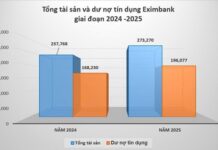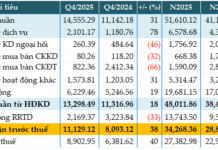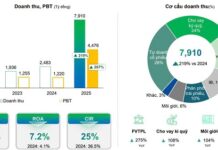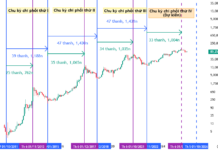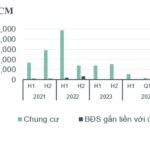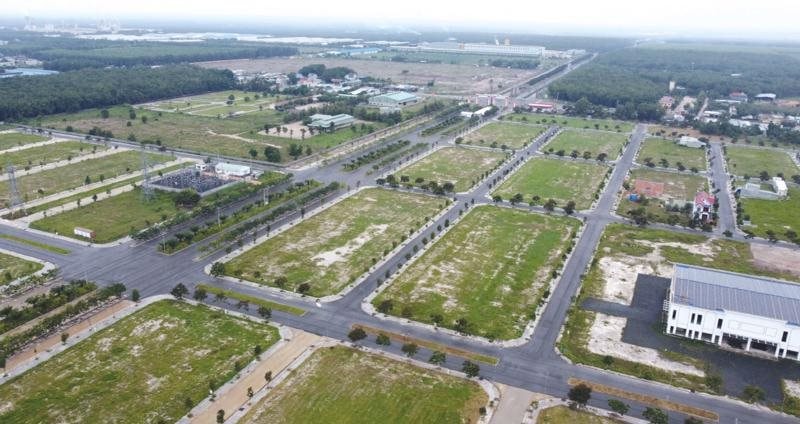
Illustrative image
In investment, the biggest unknown for real estate businesses is land price determination. The inability to determine land prices leaves projects unable to calculate land use fees for budget submission, and a unified method of annual or one-time land use fee collection has yet to be established. As a result, project legality remains unfinished.
Discussing this issue, Mr. Pham Duc Toan – CEO of EZ Property Investment and Development Joint Stock Company, shared that land price determination is a significant challenge that many businesses are facing. He gave an example that before 2022, for a 10-hectare project, enterprises paid land taxes of about 100 billion VND, but at the present time, this figure has risen to about 350 billion VND, even up to 500 billion VND. The reason lies in the fact that localities determine prices based on data from transactions during the market “fever.”
Up to now, although there are not many transactions, land prices remain high. As a consequence, enterprises are reluctant to receive land or try to delay the land transfer schedule because after 90 days of land transfer, they must pay taxes, and if they fail to do so, they will be subject to a penalty interest rate of 0.03%/day, according to Mr. Toan.
Sharing the same view, Mr. Nguyen Quoc Hiep – Chairman of the Vietnam Construction Contractors Association, stated that “Land price determination is a bottleneck in almost all projects under investment. The number of projects entangled in this issue is also very large.”
Previously, according to the Land Law 2003, the calculation of land use fees was the responsibility of the Department of Finance. However, since 2014, according to the Land Law 2013, this task has been assigned to the Department of Natural Resources and Environment. From that point on, most of the land use fee calculation dossiers that have been prolonged for many years remain unresolved or are requested to be supplemented multiple times, sent back and forth through many stages and places, and take a lot of time.
As a consequence, many projects have not been implemented or have been implemented but have not been legally completed, leading to underdeveloped infrastructure. The real estate supply has not met the demands of the people, resulting in a waste of land resources and delayed state budget collection.
Moreover, the prolonged process of land price determination increases investment costs, leading to higher real estate prices, exceeding the affordability of people in need of housing, and making the urban housing situation, which is already limited, even more tense.
Not only businesses are facing challenges due to land price determination, but those with the authority to set land prices are also struggling. In reality, in recent years, many localities, officials, or land price consulting units have been hesitant to set prices due to inconsistent legal regulations, with each locality having its own pricing method, which can lead to legal risks.
According to a report by the Department of Natural Resources and Environment, there are nearly 100 enterprises registered to operate in Ho Chi Minh City with the function of land price appraisal. However, in reality, less than 10 enterprises perform this job.
Prof. Hoang Van Cuong, a member of the National Assembly’s Committee on Finance and Budget, stated: “Price determination in the past period has been stagnant, with many localities, agencies, and even consulting units unwilling to accept price determination services. Managing agencies are also reluctant to decide on the price. This has caused investment contract stagnation for many projects.”
In addition, inappropriate land price determination is the main reason for the complexity and increase in complaints and denunciations. People disagree with the low land price compensation, and the failure to hand over the site also causes project stagnation.
The Government has issued Decree 71/2024 on land price regulations. It can be said that among the guidelines for implementing the Land Law, Decree 71 has been issued the earliest. Along with the fact that the Land Law 2024 will take effect early, from August 1, Decree 71 is expected to facilitate land price determination and resolve a series of obstacles related to land use fees.
Also related to land price issues, at the Conference of the Government’s Standing Committee with enterprises on solutions to contribute to the country’s socio-economic development on September 21, regarding Sun Group’s proposal related to land allocation according to the site clearance schedule and land price calculation at the time of land allocation, the Minister of Natural Resources and Environment affirmed that the Land Law and its guiding Decree have clearly stated that land will be allocated according to the progress of site clearance, and land price will be determined at the time of land allocation.
The Law and its guiding Decree on handling transitions also stated that if land is allocated from January 1, 2005 (the effective date of the Land Law 2003) to the present without land use fee calculation, the time to determine the land use fee will also be determined from the time of land allocation.
Selling a Plot of Land to Multiple Buyers, Ex-officer Jailed for 12 Years
Triều has a knack for creative real estate deals, or so he thought. By remaking the land certificate, he sold the same plot to multiple buyers, pocketing a cool 960 million VND. A clever scheme, but one that would unravel as soon as the new owners realized their purchase was not as exclusive as they thought.
The Latest Land Price List: What You Need to Know
The Ministry of Construction has assessed that the application of the new land price framework will have a ripple effect, triggering a surge in the property and housing market. Experts predict a 15-20% increase in prices compared to pre-framework levels, a significant jump that will have far-reaching implications for the industry and consumers alike.








